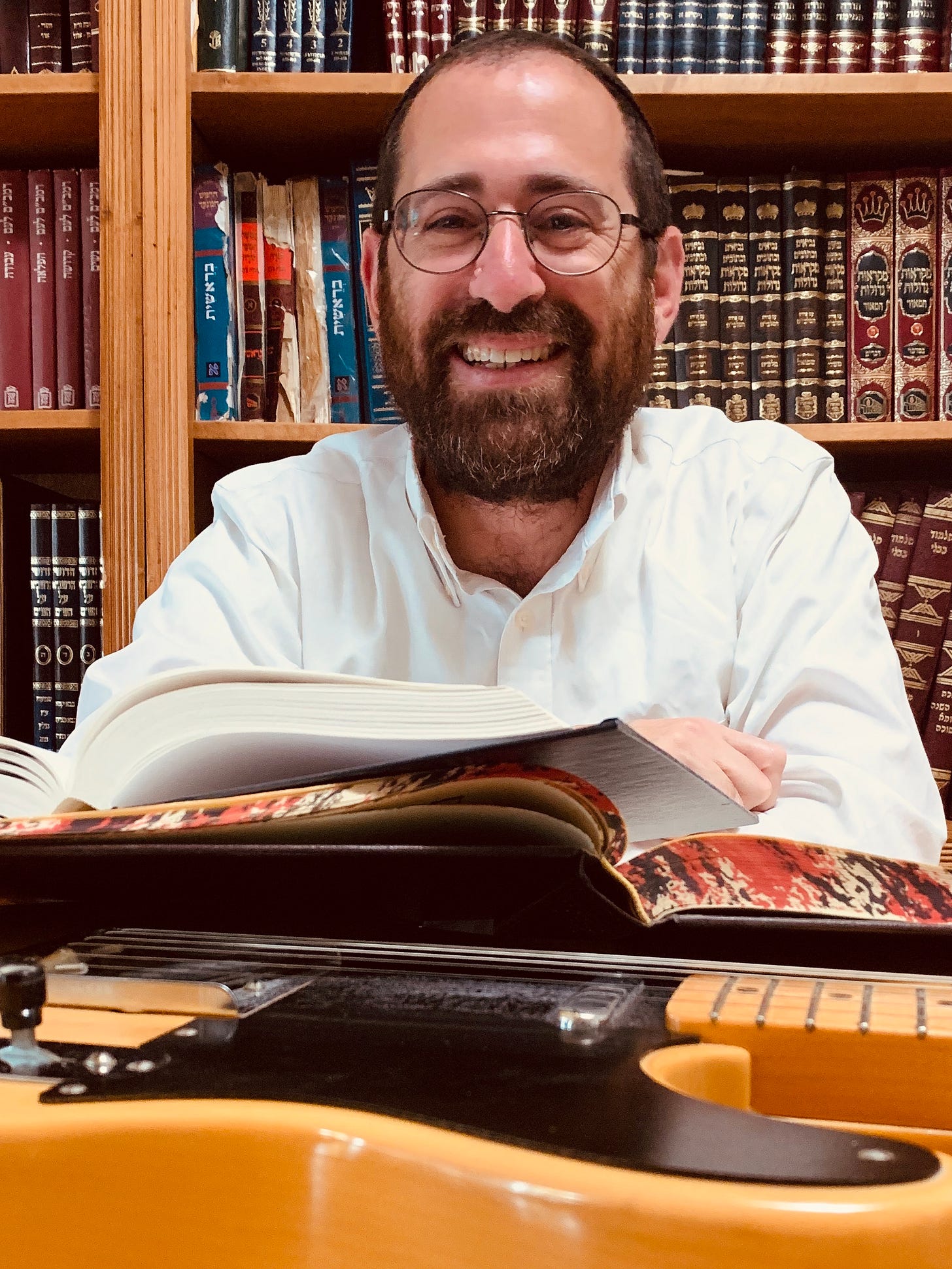For some inner peace this week, we interviewed Tzvi Gluckin, who writes The Ingathering, a series of interviews and essays about Jewish music.
What’s your Substack about in one sentence?
The Ingathering is a comprehensive look at Jewish music and spirituality, and includes interviews with musicians and artists, historical pieces, roundups, and essays about the spiritual nature of music.
What attracted you to Jewish music as a genre?
Although my family is Jewish, it’s probably more accurate to say that I grew up culturally suburban. I hung out in malls and listened to heavy metal – “metal” in the early 1980s meant something different than it does today – and after high school, earned a degree in jazz studies from the New England Conservatory in Boston.
I play guitar, and after college I moved to New York, taught guitar lessons, and played in bands around town. But other than that, I was spiritually lost and looking for meaning. My twenty-fifth birthday was also the day of the first [1993] attack on the World Trade Center, which I took as a sign. I said goodbye to my students and friends, spent six months backpacking around Europe, and arrived in Israel just before the high holidays that fall.
The transformative musical moment in my life happened at that time, on Simchas Torah, which is the final day of the fall festival season. I was herded into a synagogue. It was a small room, packed with over 100 worshippers, and they were dancing in tight circles, holding hands, and sweating. The music was deafening. I joined in the dancing, and sang along as well. Someone noticed that I was loving it, pulled me into the center of the circle, handed me a Torah scroll, and threw a prayer shawl over my head. I was ecstatic.
It was at that point that I realized that there was no band. The music, as loud and awesome as it was, was nothing but singing and foot stomping. Needless to say, I was sold. Jewish music was visceral, real, and more metal than metal.
How would you describe Jewish music to those who’ve never listened?
There’s no one answer. The Jewish people are a people in exile, and have been living in different communities around the world for about 2,000 years. What’s called “Jewish music” is often a Jewish variation, influenced by Jewish liturgical music and the different languages Jews speak, of the local styles around them. That doesn’t mean Jews haven’t had a major impact on those host communities as well, they have, but that’s why the Jewish music from, say, Eastern Europe sounds very different from the Jewish music of North Africa or the Middle East.
In addition to being a writer, you’re also a rabbi. How does music fit into your spiritual practice?
For me, music is a way to transcend the superficial barriers that keep people apart, and to discover the commonalities that bring us together. Music is a universal language. We may not use the same words to express ourselves, but music is a way to get beyond that, and the feelings music conveys, bypass those limitations. If you want to appreciate a person you don’t understand – or even like very much – listen to that person’s music, and find the humanity that’s common to all of us.
What role does music have to play in Jewish cultural storytelling?
For the most part, it doesn’t. Jewish music is functional, and plays a major role in Jewish spiritual life – meaning meditation and prayer – as well as at Jewish lifecycle events, like weddings and other celebrations. Jewish music from Eastern Europe is primarily instrumental, and even the vocal music is most often associated with the wordless melodies, or nigunim, of the Hasidic movement. Nigunim are repeated over and over again, sometimes at large gatherings of over a thousand people, but also in intimate settings, and the goal is to create a feeling of longing, or closeness, to God.
For Jews from North Africa and the Middle East, the role of music is similar. As singer Neta Elkayam told me in a recent interview for my newsletter, “Searching for the women’s voice in North Africa, I discovered a lot about my own heritage, and about the way women used to live as Jewish women in Muslim countries…there were songs they sang when kids were born, brit milah (circumcision) songs, marriage songs – the process of marriage could last for a year, and there were a lot of ceremonies inside that year – and the mikva (ritual bath).”
What’s a song or artist that deeply moves you?
Like most music people, that changes every day, but since we’re talking about Jewish music, I’ll go with this:
Who’s another Substack writer you’d recommend?
Todd Burns’ Music Journalism Insider is one of the best. It’s an invaluable resource for music writers from all walks of life, and it’s usually pretty funny as well.
Subscribe to Tzvi’s newsletter, The Ingathering, or find him on Twitter @TheRealTzvi. His freelance music writing is on gluckin.com, and he’s also got another series on Substack about music and business, Plus One Me.


